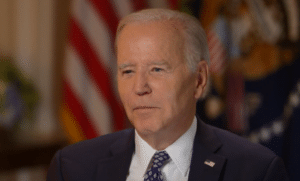Trump's Supreme Court Appointees Debate Presidential Immunity
The U.S. Supreme Court continues to deliberate the boundaries of presidential immunity in a landmark case involving Donald Trump.
The case tests the limits of presidential powers, centering on whether former presidents can claim immunity from prosecution after their term, as Reuters reports.
The controversy reached the Supreme Court after Donald Trump, challenging the denial of his immunity claim by lower courts, appealed. The appeal relates to his actions in attempting to overturn the results of the 2020 election.
Justices Appointed by Trump Play Pivotal Roles
Central to the proceedings are three justices appointed by Trump himself: Amy Coney Barrett, Brett Kavanaugh, and Neil Gorsuch. These justices are part of the Court's conservative 6-3 majority, reshaped by Trump's appointments.
Justice Barrett, whose appointment in 2020 following Justice Ruth Bader Ginsburg's death expanded the conservative bloc, actively questioned the broad scope of immunity claimed. She posed a hypothetical involving a president who might order a coup, questioning whether such acts would be shielded from prosecution.
Constitutional Interpretations and Presidential Powers
D. John Sauer, Trump’s lawyer, recently argued that presidential immunity is inherent in Article II of the Constitution, which outlines presidential powers but does not explicitly mention immunity. This interpretation was challenged through various hypotheticals posed by the justices.
Justice Kavanaugh explored the relation between executive privilege and immunity, noting that neither is explicitly outlined in the Constitution, but both are inferred from historical understanding of presidential powers.
The Debate Over Self-Pardon and Executive Privilege
During the hearing, Justice Gorsuch highlighted the complexities in differentiating private actions from official conduct, which might be protected under immunity. He also raised concerns about the potential for presidents to pardon themselves out of fear of prosecution by successors.
"We're writing a rule for the ages," Gorsuch remarked, emphasizing the long-term implications of the court's decision.
Challenging Traditional Views on Presidential Accountability
Barrett scrutinized the notion that impeachment must precede any criminal prosecution, pointing out that other officers subject to impeachment are not protected from criminal charges without first being impeached. She questioned why the presidency should be treated differently, especially when the Constitution does not make such a distinction.
The court’s decision in this case could redefine the scope of actions a president is accountable for and whether Congress must explicitly criminalize certain presidential acts.
Implications for the 2020 Election Rematch
The timing of the Supreme Court’s decision holds particular significance as Trump is set to challenge Joe Biden in a rematch of the 2020 election on Nov. 5. The outcome could influence public perception and legal precedent regarding executive accountability.
The arguments and questions raised by the justices reflect deep constitutional considerations, grappling with the balance between ensuring presidential effectiveness and preventing misuse of power.
Conclusion: A Landmark Decision Ahead
This case, engaging three Trump-appointed justices, revisits fundamental questions about the separation of powers, the scope of presidential immunity, and the constitutional safeguards against executive overreach.
As the court contemplates a decision that will resonate through the ages, the legal and political communities watch closely. The final ruling could potentially reshape the understanding of executive power in the United States.



